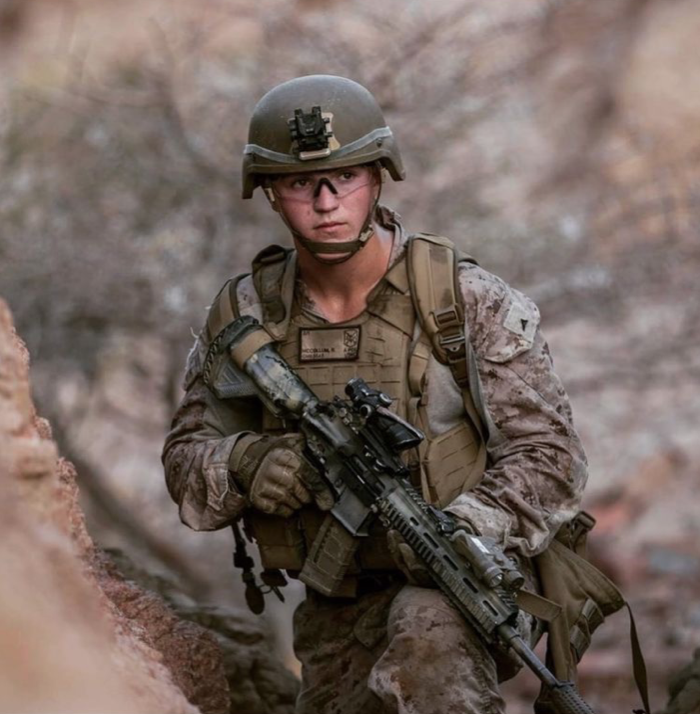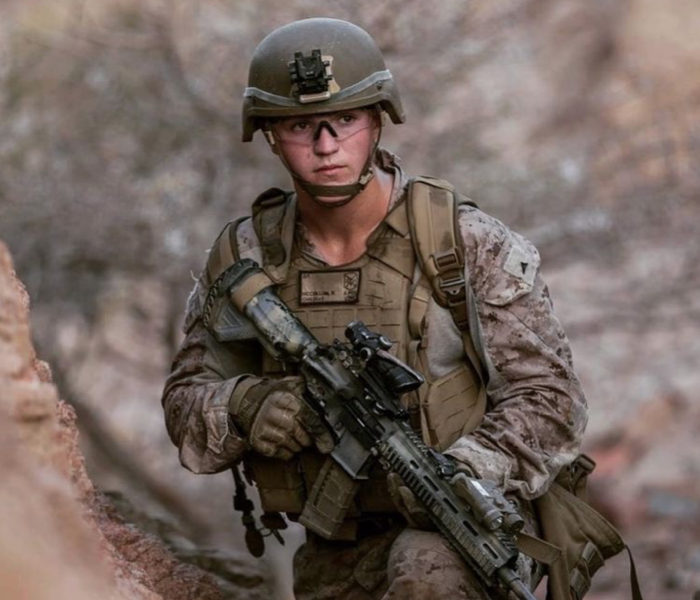
By Sofia Saric
Casper Star-Tribune
Via- Wyoming News Exchange
CASPER — The father of a Wyoming Marine killed in a 2021 suicide bombing in Afghanistan hopes Wednesday’s congressional hearing on the Kabul airport attack will lead to accountability.
“I knew I was lied to in my house, in my living room, when I got the official report of what happened,” Jim McCollum told the Star-Tribune on Wednesday. “I said, ‘Just don’t lie to me; we are from Wyoming, and we are strong.’ And the first thing they did was lie to my face.”
Current and former U.S. service members who were on the ground during the attack, which killed 13 troops and dozens of Afghani civilians, gave harrowing testimony Wednesday about the alleged negligence and lack of accountability during the U.S. withdrawal from the war-torn country.
The House Foreign Affairs Committee held a hearing Wednesday to examine the Biden administration’s handling of the evacuation, including the Aug. 26 attack on Hamid Karzai International Airport as U.S. service members evacuated Americans and Afghans from a Taliban-controlled government.
A single explosive device killed 11 Marines, a soldier, a sailor and 170 Afghan civilians. Dozens more were injured. Among those killed was Marine Rylee McCollum of Bondurant, a tiny community about 45 minutes southeast of Jackson.
McCollum was in Afghanistan on his first deployment when the evacuation began and was apparently manning a checkpoint at the airport in Kabul when the bomb went off. He was 20 years old when he died.
Jim McCollum hopes the hearing will lead to explanations of “why we did what we did,” he said.
He knew Rylee could be in danger as a Marine, and he believes that his son would do what he did 100 more times. Now, McCollum just wants answers.
“I have pictures of Rylee all over my house, and I actually stopped at one to talk to him,” he said. “I told him, ‘You deserve better than this.’”
There were women in Afghanistan who were able to go to school for the first time and have some sort of life after the U.S. invaded the country, said Jim McCollum. That all crumbled during the U.S. withdrawal.
“I shudder when I think of those women,” he said. “We spit in the face of humanity.”
At Wednesday’s hearing, former Marine Sgt. Tyler Vargas-Andrews of California testified. He lost two of his limbs, multiple organs and had 44 surgeries to date as a result of the bombing.
He surveyed and reported on Taliban activity from the top platform of a satellite tower near the civilian airport terminals at Abbey Gate, where U.S. forces were screening those trying to flee.
Tens of thousands of people descended upon Abbey Gate, Vargas-Andrews said during the hearing on Capitol Hill. Afghans were suffering from extreme malnutrition, dehydration and heat exhaustion — and infants were dying.
“Some Afghans turned away tried to kill themselves on the razor wire in front of us that we used as a deterrent,” he said. “They thought this was merciful compared to the Taliban torture they faced.”
He repeatedly communicated atrocities to his chain of command, but nothing came of it, he said.
“The state was not prepared.”
Four days before the attack, an improvised explosive blew up around the perimeter of Abbey Gate, said Vargas-Andrews. The Taliban was doing a test run.
Intel later confirmed a suicide bomber was in the vicinity of Abbey Gate during the early hours of Aug. 26. The suspected man was spotted as “the anomaly in the crowd” as “the individuals consistently and nervously looked up at our positions in the crowd,” he said.
Vargas-Andrews asked his battalion commander if he could shoot, he said.
His battalion commander responded, “I don’t know,” he said.
Eventually the suspected individual disappeared into the crowd. Vargas-Andrews never got an answer from his commanders. To this day, Vargas-Andrews believes that person was the suicide bomber.
Later that day, the Marine was standing against a two-foot canal wall waiting for an Afghan family. He felt a flash and a wave of pressure. He stopped his testimony to wipe his tears away and quickly muttered “God dammit” before continuing.
“I opened my eyes to Marines dead and unconscious laying around me,” Vargas-Andrews said. “And my body was catastrophically wounded with 100 to 150 ball bearings now in it.”
His right arm was completely shredded and unusable, and his lower abdomen was soaked in blood, he said.
“My abdomen was ripped open. Every inch of my exposed body except for my face took ball bearings and shrapnel…I was awake through most of it screaming, moaning and cursing,” Vargas-Andrews said.
Despite this, the Federal Bureau of Investigations and the Naval Criminal Investigative Service never interviewed him, he said.
Army medic Spc. Aidan Gunderson, who was also on the ground, said he still carries “these horrific scenes of Abbey Gate, even the smell. Mothers carrying dead babies, and the Taliban mercilessly beating people and civilians begging for their lives.”
He boarded a plane to Kabul on his 21st birthday.
An injured Marine with blood-soaked pants squeezed Gunderson’s hand after the bombing, looked into his eyes and told him he didn’t want to die, he said. Gunderson reassured the man he would be fine, knowing that he might not survive.
“Mostly, I think about the 13 Americans killed at Abbey Gate. Their deaths should not have happened. They should be alive today, and I, like many others, should not be forced to carry this burden for the rest of our lives. Please consider the 13, and me, as you continue this investigation,” Gunderson said.





